LATEST NEWS
Program schedule is now available (click here)!
Registration is now open!
NecSys 2025 will take place at Clearwater Bay Campus, HKUST, Hong Kong!
SILVER SUPPORTERS


IEEE OAJPE SPECIAL SECTION
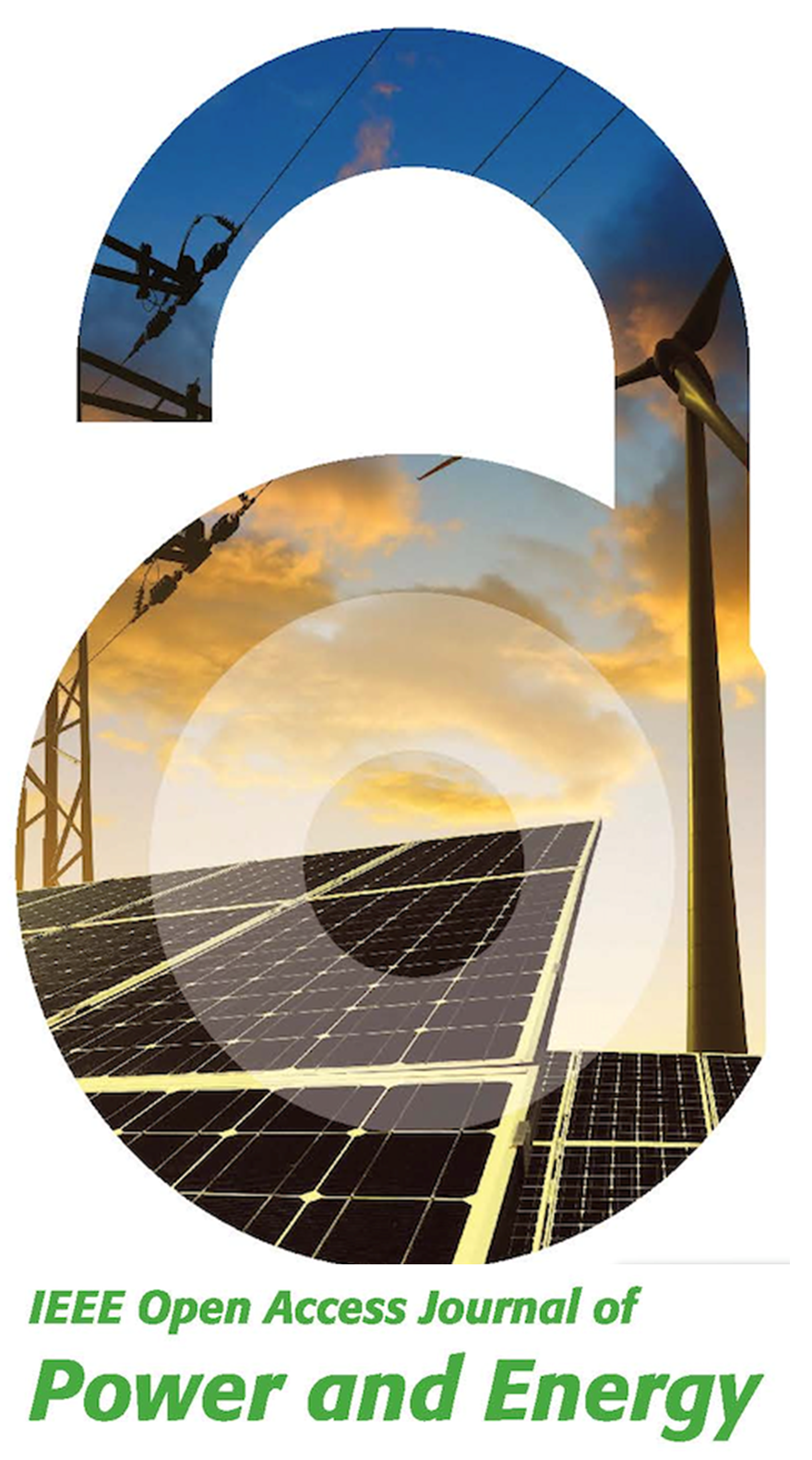
BRONZE SUPPORTERS



GOLD SUPPORTERS





Organizers: Ding Zhang*, Li Qiu**
∗ Department of Electronic and Computer Engineering, The Hong Kong University of Science and Technology, Hong Kong, China
(e-mail: ding.zhang@connect.ust.hk).
∗∗ School of Science and Engineering, The Chinese University of Hong Kong, Shenzhen, Guangdong, China
(e-mail: qiuli@cuhk.edu.cn).
The gain theory surrounding the small gain theorem has been around for almost six decades, achieving tremendous success in applications to robust control and networked control systems. In the past six years, a complementary phase theory has emerged and begun to flourish in various subfields of the system and control community. Serving as a long missing companion to the well-established gain theory, the phase theory is being continually enriched through studies of matrices, operators, multivariable linear systems, nonlinear systems, and more. While much of the phase theory has focused on abstract monolithic models, the occasion of NecSys 25 presents an opportune moment to ask: What can phase theory offer to the stability analysis of dynamical networks?
The first step in answering this overarching question is to recognize the unique challenges posed by networked systems. These include massive scale, heterogeneity, nonlinearity, delays—challenges that call for control-theoretic tools that are scalable, decentralized, and adaptable to ad-hoc requirements that arise from diverse and complex network configurations. Phase theory meets these requirements by offering a quantifiable and scalable framework for analyzing network stability, generating conditions that guarantee safe plug-and-play network operation. Furthermore, its integration with the gain theory can boost its strength and the resulting conditions become less conservative.
In this mini workshop, we curate four presentations that address both the societal and technical challenges faced by modern dynamical networks. The speakers will offer insights into how phase theory can be harnessed for decentralized stability analysis of complex networks, showcasing several cutting-edge applications in domains such as power networks, multi-agent systems, and communication networks. Through this mini workshop, we also aim to inspire further research at the intersection of phase theory and network analysis/design, and to broaden its application across a wider array of networked systems.
Presentaion 1
Presentaion 2
Presentaion 3
Presentaion 4
Presentaion 5
Title: Phase: the Sense of Direction in Systems, Networks, Data, and Intelligence
Abstract: In this presentation, we will use a simple multi-agent system consensus problem to illustrate the importance of phase in systems, networks, data, and intelligence. Phase has been inadequately studied before but in recent years, it is becoming the subject of a new scientific theory, called the phase theory.
Speaker: Li Qiu, The Chinese University of Hong Kong, Shenzhen, Guangdong, China.
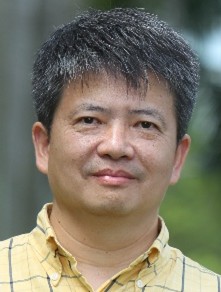 Bio: Li Qiu received the Ph.D. degree in electrical engineering from the University of Toronto, Toronto, ON, Canada, in 1990. After briefly working with Canadian Space Agency, the Fields Institute for Research in Mathematical Sciences (Waterloo), and the Institute of Mathematics and its Applications (Minneapolis), he joined the Hong Kong University of Science and Technology in 1993 and became a Professor Emeritus in August 2024. He is now a Presidential Chair Professor of the Chinese University of Hong Kong, Shenzhen.
Bio: Li Qiu received the Ph.D. degree in electrical engineering from the University of Toronto, Toronto, ON, Canada, in 1990. After briefly working with Canadian Space Agency, the Fields Institute for Research in Mathematical Sciences (Waterloo), and the Institute of Mathematics and its Applications (Minneapolis), he joined the Hong Kong University of Science and Technology in 1993 and became a Professor Emeritus in August 2024. He is now a Presidential Chair Professor of the Chinese University of Hong Kong, Shenzhen.
His research interests include system, control, optimization theory, and mathematics for information technology, as well as their applications in manufacturing industry and energy systems. He is also interested in control education and co-authored an undergraduate textbook “Introduction to Feedback Control” which was published by Prentice-Hall in 2009. Dr. Qiu was an Associate Editor for IEEE Transactions on Automatic Control and Automatica. He was the General Chair of the 7th Asian Control Conference, which was held in Hong Kong in 2009. He was a Distinguished Lecturer from 2007 to 2010 and was a Member of the Board of Governors in 2012 and 2017 of the IEEE Control Systems Society. He is the founding Chairperson of the Hong Kong Automatic Control Association. He is a Fellow of IEEE and a Fellow of IFAC.
Title: Gain and Phase: Decentralized Stability Condition for Modern Power Systems
Abstract: Power electronics converters play a significant role in renewable power systems, acting as the interfaces between the power grid and renewable energy sources, high-voltage DC transmission systems, smart loads, energy storage systems, etc. Their large-scale integration introduces new stability challenges due to their high-order, low-inertia dynamics, which differ significantly from conventional synchronous generators. Under this circumstance, conventional centralized methods such as eigenvalue analysis and Lyapunov methods may suffer from scalability and dimensionality problems. In this work, we investigated the small-signal stability of power systems and proposed a decentralized stability condition by exploiting a frequency-wise mixed small gain theorem and small phase theorem. This condition guarantees the stability of the entire power system by examining the gain/phase characteristics of individual converter, making it scalable for large-scale networks. In addition, when the power system is unstable, it identifies the range of the oscillation frequency and the converter that causes instabilities. It also provides guidelines for local control design of individual converter.
Speaker: Dan Wang, KTH Royal Institute of Technology, Sweden.
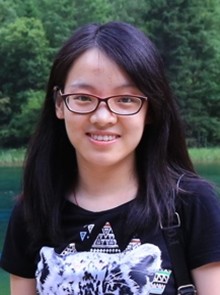 Bio: Dan Wang received the Ph.D. degree in electronic and computer engineering from the Hong Kong University of Science and Technology, Hong Kong SAR, China, in 2020. She is currently a Postdoc at KTH Royal Institute of Technology, Stockholm, Sweden. From January 2018 to July 2018, she was a visiting scholar at University of Illinois at Urbana Champaign, Urbana, IL, USA. Her research interests include systems and control theory, phase theory, dynamical networks, renewable power systems, and control of epidemics.
Bio: Dan Wang received the Ph.D. degree in electronic and computer engineering from the Hong Kong University of Science and Technology, Hong Kong SAR, China, in 2020. She is currently a Postdoc at KTH Royal Institute of Technology, Stockholm, Sweden. From January 2018 to July 2018, she was a visiting scholar at University of Illinois at Urbana Champaign, Urbana, IL, USA. Her research interests include systems and control theory, phase theory, dynamical networks, renewable power systems, and control of epidemics.
Title: Phase, Gain, and the Internet
Abstract: Advances in communication and network technologies have driven the rapid growth of modern networked control systems, including power grids, social networks, distributed optimization algorithms deployed across a network of computation devices, and even the communication network itself. These networks face common challenges brought by factors such as large scale, high nonlinearity, heterogeneity, and delays, all of which complicate their analysis and design. This motivates the development of scalable, decentralised, and robust control-theoretical tools tailored for networks.
In this presentation, we highlight some recent progress in this area of research. The well-established gain-based gain and the recently revitalized phase concepts have been exploited in depth for network stability analysis, both offering strong graphical insights. We first explore a frequency-wise combination of these two tools to generate mixed gain-phase network stability certificates. We then introduce the Davis-Wielandt shell—a graphical representation that integrates both the gain and phase information of a matrix—to reduce the conservatism of these certificates. These tools are capable of handling network dynamics with large phase lag and delays, laying the foundation for further investigation into topics such as network delay margins. Throughout, we illustrate, in the context of network congestion control, their application to practical networks.
Speaker: Ding Zhang, The Hong Kong University of Science and Technology, Hong Kong SAR, China.
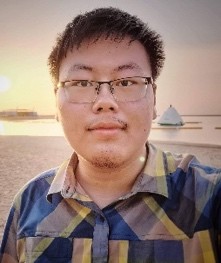 Bio: Ding Zhang received the B.Eng. degree in mechanical engineering from Huazhong University of Science and Technology, Wuhan, China, in 2018, and the Ph.D. degree in electronics and computer engineering from the Hong Kong University of Science and Technology, Hong Kong SAR, in 2024, where he is currently a postdoctoral research fellow. He was a visiting student with the EMAN Group at King Abdullah University of Science and Technology, Thuwal, Saudi Arabia, and the Control Group at the University of Cambridge, Cambridge, United Kingdom. His research interests include graphical stability analysis and mixed gain-phase analysis of large-scale networked systems, particularly communication networks. More broadly, he is interested in matrix theory, spectral graph theory, and control theory, along with their applications in complex networks.
Bio: Ding Zhang received the B.Eng. degree in mechanical engineering from Huazhong University of Science and Technology, Wuhan, China, in 2018, and the Ph.D. degree in electronics and computer engineering from the Hong Kong University of Science and Technology, Hong Kong SAR, in 2024, where he is currently a postdoctoral research fellow. He was a visiting student with the EMAN Group at King Abdullah University of Science and Technology, Thuwal, Saudi Arabia, and the Control Group at the University of Cambridge, Cambridge, United Kingdom. His research interests include graphical stability analysis and mixed gain-phase analysis of large-scale networked systems, particularly communication networks. More broadly, he is interested in matrix theory, spectral graph theory, and control theory, along with their applications in complex networks.
Title: Scalability and Plug-and-Play Considerations in Multi-Agent Systems: A Graph-Theoretic and Phase-Based Approach
Abstract: Multi-agent systems appear in various engineering fields, such as traffic management, smart grid applications, and so on. One important aspect that has been identified and has been studied is the scalability of these systems, that is, whether key stability and performance properties remain as the number of agents is increased. The controller, as well as the topology of the information exchange between the agents, has a direct impact on the scalability.
A second point is that in many applications the number of agents that participate will vary. Ideally, in these applications, when new agents connect, this process should be simple, fast, and not cause a significant redesign of the system. A connection that follows these principles is what we call a plug-and-play connection. As for the scalability issue, both the controller adjustments as well as the information exchange are important factors in achieving plug-and-play connections.
In this tutorial session, we will focus first and foremost on the information exchange topology. To this end, we will make use of some graph theoretical aspects that are related to the scalability of multi-agent systems, in particular we will look at algebraic connectivity and the essential phase of the Laplacian. We will investigate various methods for growing the communication graphs that underpin information exchange and assess connection methods in terms of their suitability for plug-and-play functionality and their impact on identified graph properties.
Speakers:
Sonja Stuedli, The University of Newcastle, Australia.
Yamin Yan, Nanyang Technological University, Singapore.
 Bio: Sonja Stuedli received the bachelor’s degree in electrical engineering and the master’s degree in mechanical engineering from ETH Zurich, Zurich, Switzerland, in 2008 and 2011, respectively, and the Ph.D. degree in electrical engineering from the University of Newcastle, Callaghan, NSW, Australia, in 2016. She is currently with the University of Newcastle as a Research Academic. Her research interests include networked systems, multiagent systems, and distributed control.
Bio: Sonja Stuedli received the bachelor’s degree in electrical engineering and the master’s degree in mechanical engineering from ETH Zurich, Zurich, Switzerland, in 2008 and 2011, respectively, and the Ph.D. degree in electrical engineering from the University of Newcastle, Callaghan, NSW, Australia, in 2016. She is currently with the University of Newcastle as a Research Academic. Her research interests include networked systems, multiagent systems, and distributed control.
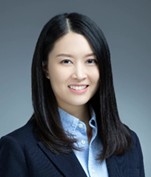 Bio: Yamin Yan received the B.E. degree in Automation from Wuyuzhang Honors College, Sichuan University, Chengdu, China, in 2013, and the Ph.D. degree in Mechanical and Automation Engineering from the Chinese University of Hong Kong, Hong Kong, in 2017. She worked as a Research Associate at the University of Newcastle, Australia, from 2018 to 2021, and as a Research Assistant Professor at the Department of Electronic and Computer Engineering and the CKS Robotics Institute, Hong Kong University of Science and Technology, from 2021 to 2023. She is currently a Senior Lecturer at the School of Electrical and Electronic Engineering, Nanyang Technological University, Singapore. Her research interests include networked systems and control, cyber-physical systems, and security control.
Bio: Yamin Yan received the B.E. degree in Automation from Wuyuzhang Honors College, Sichuan University, Chengdu, China, in 2013, and the Ph.D. degree in Mechanical and Automation Engineering from the Chinese University of Hong Kong, Hong Kong, in 2017. She worked as a Research Associate at the University of Newcastle, Australia, from 2018 to 2021, and as a Research Assistant Professor at the Department of Electronic and Computer Engineering and the CKS Robotics Institute, Hong Kong University of Science and Technology, from 2021 to 2023. She is currently a Senior Lecturer at the School of Electrical and Electronic Engineering, Nanyang Technological University, Singapore. Her research interests include networked systems and control, cyber-physical systems, and security control.
Title: Charting a Safe and Incentive Path Towards Green Energy Systems
Abstract: Modern energy systems are undergoing a significant transformation, marked by the increasing prevalence of distributed energy resources (DERs), responsive loads, and the emergence of more autonomous devices. These developments have created opportunities for customers to actively participate in system operations, which, however, may involve mutual disclosure therein. In one regard, customers have more access to control elements about energy network, which opens a gateway for cyber-physical attacks in energy systems. Thus, the system operators must be careful about strategic attacks by hacking edge devices. In another regard, due to rising privacy concerns from customers, the system operator is unaware of individual preferences in energy usage. This obstructs system operators to achieve global objectives including efficiency, reliability, fairness and stability of the network since, unlike dispatchable resources, customers often cannot be directly controlled. Clearly, energy systems nowadays demand intelligent solutions that can effectively manage DERs and accommodate loads for both safe operation and social welfare. To this end, this talk will first present an efficient algorithm to identify the potential attack in energy systems for safe operation and then present an adaptive pricing framework that can incentivize customers to align individual benefits with social welfare while avoiding the need of customer-specific knowledge.
Speaker:
Yan Jiang, The Chinese University of Hong Kong, Shenzhen, Guangdong, China.
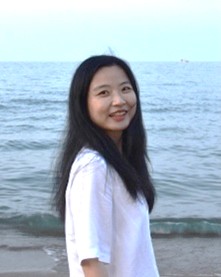 Bio: Yan Jiang is currently an Assistant Professor with the School of Science and Engineering at Chinese University of Hong Kong, Shenzhen, CHN. She received the B.Eng. degree in electrical engineering and automation from Harbin Institute of Technology, Harbin, CHN, in 2013, the M.S. degree in electrical engineering from Huazhong University of Science and Technology, Wuhan, CHN, in 2016, and the Ph.D. degree in electrical engineering with the M.S.E. degree in Applied Mathematics and Statistics from Johns Hopkins University, Baltimore, USA, in 2021. She was a Postdoctoral Scholar with the Department of Electrical and Computer Engineering at University of Washington, Seattle, USA, from 2021 to 2024. Her research interests lie in control, optimization, and learning with application to power systems.
Bio: Yan Jiang is currently an Assistant Professor with the School of Science and Engineering at Chinese University of Hong Kong, Shenzhen, CHN. She received the B.Eng. degree in electrical engineering and automation from Harbin Institute of Technology, Harbin, CHN, in 2013, the M.S. degree in electrical engineering from Huazhong University of Science and Technology, Wuhan, CHN, in 2016, and the Ph.D. degree in electrical engineering with the M.S.E. degree in Applied Mathematics and Statistics from Johns Hopkins University, Baltimore, USA, in 2021. She was a Postdoctoral Scholar with the Department of Electrical and Computer Engineering at University of Washington, Seattle, USA, from 2021 to 2024. Her research interests lie in control, optimization, and learning with application to power systems.
Organizers: Peter E. Caines, Xudong Chen and Shuang Gao
This workshop presents recent advances in dynamics, control, and games on large-scale graphs and their graph limit counterparts (including graphons and graphexes). The study of complex multi-agent systems has benefited from the abstraction of large networks via graph limits, which allow for tractable analysis and scalable control and learning algorithms. The speakers will introduce new theoretical frameworks and algorithmic tools for modeling, controlling, and learning over both dense and sparse graph sequences.
The talks will cover several key directions: new models for mean field control on sparse graphs using local weak convergence (Kai Cui), structural and probabilistic properties of graphons for Hamiltonian decompositions (Xudong Chen), Laplacian-based consensus dynamics over signed graphons (Paolo Frasca), stochastic discrete-time graphon field games with closed-form solutions (Alex Dunyak), and a unifying framework for mean field control and games over both dense and sparse networks via the graphexon formalism (Peter E. Caines and Minyi Huang). Together, these presentations highlight the evolving frontier at the intersection of control theory, network science, and game theory, with the aim of bridging local and global properties of complex systems across graph topologies.
The H-property of Graphons – Xudong Chen. This talk investigates the probability of Hamiltonian decompositions in random graphs sampled from graphons. The work establishes the “zero-one” property for the class of step-graphons and provide a geometric characterization.
Laplacian Dynamics on Graphons – Paolo Frasca. Focusing on Laplacian-based dynamics in large and possibly signed networks, this talk bridges the discrete and continuous representations through graphon Laplacians. The research demonstrates the consistency of consensus-like dynamics under mild regularity assumptions, offering insights into the behavior of large-scale network systems.
Stochastic Linear Dynamic Field Games on Graphons – Alex Dunyak. Introducing stochastic graphon field games (GFGs) in discrete time, this talk presents closed-form solutions for finite and infinite time horizons. The solutions reveal emergent behaviors based on the eigenstructure of the graphon.
Learning Mean Field Control on Sparse Graphs – Kai Cui. The talk introduces a novel mean field control model designed for sparse graphs, inspired by local weak convergence. Addressing the limitations of existing graphon-based methods for sparse networks, this approach proposes scalable learning algorithms suitable for graph sequences with finite average degrees. Theoretical analysis and comparative evaluations demonstrate superior performance in realistic network scenarios.
Mean Field Control and Games on Large Dense and Sparse Networks: Local and Global Properties – Peter E. Caines and Minyi Huang. This talk presents an overview of the current status of the construction of limit system dynamics, costs and controls on any infinite embedded network sequence via the use of what are termed the vertexon-graphexon limits of their vertex and edge sequences. Generalizing the notion of a graphon, this formulation enables the analysis of control and games problems for systems on both sparse and dense graph limits.
Presentaion 1
Presentaion 2
Presentaion 3
Presentaion 4
Presentaion 5
Title: The H-property of Graphon
Speaker: Xudong Chen
Abstract: Graphons have recently been introduced by Lovasz, Sos, and others to study very large graphs. A graphon can be understood as either the limit object of a convergent sequence of graphs, or, a statistical model from which to sample large random graphs. We take here the latter point of view and address the following problem: What is the probability that a random graph sampled from a graphon has a Hamiltonian decomposition? We have recently observed the following phenomenon: In the asymptotic regime where the size of the random graph goes to infinity, the probability tends to be either 0 or 1, depending on the underlying graphon. In this talk, we establish this “zero-one” property for the class of step-graphons and provide a geometric characterization.
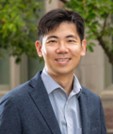 Bio: Xudong Chen is an Associate Professor in the Department of Electrical and Systems Engineering at Washington University in St. Louis. He obtained the B.S. degree in Electronic Engineering from Tsinghua University, China, in 2009, and the Ph.D. degree in Electrical Engineering from Harvard University in 2014. He is an awardee of the 2020 Air Force Young Investigator Program, a recipient of the 2021 NSF Career Award, the recipient of the 2021 Donald P. Eckman Award, and the recipient of the 2023 A.V. Balakrishnan Early Career Award. His current research interests are in the area of control theory, stochastic processes, optimization, network science, and their applications.
Bio: Xudong Chen is an Associate Professor in the Department of Electrical and Systems Engineering at Washington University in St. Louis. He obtained the B.S. degree in Electronic Engineering from Tsinghua University, China, in 2009, and the Ph.D. degree in Electrical Engineering from Harvard University in 2014. He is an awardee of the 2020 Air Force Young Investigator Program, a recipient of the 2021 NSF Career Award, the recipient of the 2021 Donald P. Eckman Award, and the recipient of the 2023 A.V. Balakrishnan Early Career Award. His current research interests are in the area of control theory, stochastic processes, optimization, network science, and their applications.
Title: Laplacian dynamics on graphons.
Speaker: Paolo Frasca
Abstract: This talk will discuss some ongoing work on Laplacian-based dynamics on large networks. We will consider large, possibly signed, graphs and “consensus-like” dynamics that are defined by the Laplacian of the graph. In the limit, as the size goes to infinity, we will consider (signed) graphons with their associated Laplacian operators and the corresponding dynamics. Our results show the consistency between discrete and continuous representations under very mild regularity assumptions.
 Bio: Paolo Frasca received his Ph.D. from Politecnico di Torino, Turin, Italy, in 2009. From 2013 to 2016, he was an Assistant Professor at the University of Twente, Enschede, Netherlands. Since October 2016, he has been a CNRS Researcher at GIPSA-Lab, Grenoble, France. Since 2021, he has led the “Dynamics and Control of Networks” (DANCE) joint research team at GIPSA-Lab and the Inria Centre at the University of Grenoble Alpes. His research interests include control systems and network theory, with applications in transportation and social networks. He has (co-)authored over 60 journal publications on these topics. Additionally, he has served as an Associate Editor for several conferences and journals, including the International Journal of Robust and Nonlinear Control, IEEE Control Systems Letters, Asian Journal of Control, and Automatica.
Bio: Paolo Frasca received his Ph.D. from Politecnico di Torino, Turin, Italy, in 2009. From 2013 to 2016, he was an Assistant Professor at the University of Twente, Enschede, Netherlands. Since October 2016, he has been a CNRS Researcher at GIPSA-Lab, Grenoble, France. Since 2021, he has led the “Dynamics and Control of Networks” (DANCE) joint research team at GIPSA-Lab and the Inria Centre at the University of Grenoble Alpes. His research interests include control systems and network theory, with applications in transportation and social networks. He has (co-)authored over 60 journal publications on these topics. Additionally, he has served as an Associate Editor for several conferences and journals, including the International Journal of Robust and Nonlinear Control, IEEE Control Systems Letters, Asian Journal of Control, and Automatica.
Title: Stochastic Linear Dynamic Field Games on Graphons
Speaker: Alex Dunyak
Abstract: Graphon Field Games (GFGs) are a type of mean field game where each agent attempts to match the average state of its neighbors via a graphon, with quadratic costs for deviating from this average and quadratic control costs. In this talk, we define stochastic GFGs in discrete time and show that this game has a closed form solution for finite time horizon games which is adapted to the current state of the game at each time step. An infinite time horizon solution is proposed, which has emergent behavior in the solution state based on if the maximal eigenvalue of the graphon being normalized. Results are supported with numerical demonstrations.
 Bio: Alex Dunyak has a doctorate in electrical engineering from McGill University, supervised by Peter E. Caines, where he studied the application of control theory to large networks. He received a master’s degree from the New York University Tandon School of Engineering in 2019, working with Professor Quanyan Zhu, and a bachelor’s degree in computer systems engineering and mathematics from the University of Massachusetts, Amherst in 2017.
Bio: Alex Dunyak has a doctorate in electrical engineering from McGill University, supervised by Peter E. Caines, where he studied the application of control theory to large networks. He received a master’s degree from the New York University Tandon School of Engineering in 2019, working with Professor Quanyan Zhu, and a bachelor’s degree in computer systems engineering and mathematics from the University of Massachusetts, Amherst in 2017.
Title: Learning Mean Field Control on Sparse Graphs
Speaker: Kai Cui
Abstract: Large agent networks are abundant in applications and nature and pose difficult challenges in the field of multi-agent reinforcement learning (MARL) due to their computational and theoretical complexity. While graphon mean field games and their extensions provide efficient learning algorithms for dense and moderately sparse agent networks, the case of realistic sparser graphs remains largely unsolved. Thus, we propose a novel mean field control model inspired by local weak convergence to include sparse graphs such as power law networks with coefficients above two. Besides a theoretical analysis, we design scalable practical learning algorithms which apply to the challenging class of graph sequences with finite average degrees. We compare our model and algorithms for various examples on synthetic and real world networks with mean field algorithms based on Lp graphons and graphexes. As it turns out, our approach outperforms existing methods in many examples and on various networks due to the special design aiming at an important, but so far hard to solve class of MARL problems.
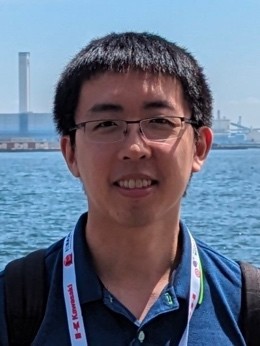 Bio: Kai Cui is a principal researcher at Huawei Hong Kong Research Center, where he works on LLM post-training, reinforcement learning and data efficiency. Before starting in Hong Kong, he obtained the MSc in EE & in CS, and a PhD in EE at the Self-Organizing Systems Lab of TU Darmstadt, Germany. His research interests are multi-agent systems, mean field games on graphs, reinforcement learning, as well as application thereof to language models.
Bio: Kai Cui is a principal researcher at Huawei Hong Kong Research Center, where he works on LLM post-training, reinforcement learning and data efficiency. Before starting in Hong Kong, he obtained the MSc in EE & in CS, and a PhD in EE at the Self-Organizing Systems Lab of TU Darmstadt, Germany. His research interests are multi-agent systems, mean field games on graphs, reinforcement learning, as well as application thereof to language models.
Title: Mean Field Control and Games on Large Dense and Sparse Networks: Local and Global Properties
Speaker: Peter E. Caines and Minyi Huang
Abstract: The drawbacks in the formulation of graphons include the lack of an underlying metric topology and the fact that non-empty graph sequence limits exist only for dense graphs. These problems are obviated by the vertexon-graphexon construction of limits for all sequences of graphs embedded in compacta in (PEC:CDC2022). For such sequences, the empirical node and edge densities converge weakly to (not necessarily unique) limits consisting of measures on (vertexons) and on (graphexons). This in turn enables the construction of limit system dynamics, costs and controls defined on any network sequence so as to yield what we term GXMFG systems generalizing GMFG systems.
In this talk an overview of the current status of this formulation will be presented. The graphexon framework permits four classes of interaction to be identified corresponding to the Lebesgue decomposition of the graphexon measure, namely, what we term local and global absolutely continuous interactions and local and global singular interactions. Further, within the latter two, the cases where the singular measure is and is not supported on submainfolds (in ) may be distinguished. In the particular case of absolutely continuous limit measures GMFG theory (PEC,MH:SICON 2021) is retrieved. Next, for certain classes of constant finite degree graphs (viz. line graphs and rectangular lattices) the resulting GXMFG equations have singular graphexon measures supported on families of submanifolds; their solutions are given in (PEC,MH:ACC2024,CDC2024) for the case of local second order (graph Laplacian) interactions. These two base cases will be presented within the general GXMFG setting and the prospects for a general existence and uniqueness theory of solutions discussed.
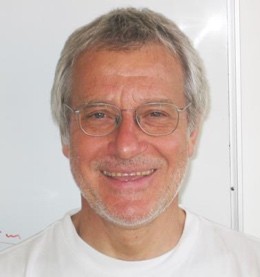 Bio:Peter E. Caines received the BA in mathematics from Oxford University in 1967 and the PhD in systems and control theory in 1970 from Imperial College, University of London, supervised by David Q. Mayne, FRS. Following PDF and visiting positions he joined McGill University in 1980, where he is Distinguished James McGill Professor and Macdonald Chair in the Department of Electrical and Computer Engineering. He received the IEEE Control Systems Society Bode Lecture Prize (2009), is a Fellow of IFAC, CIFAR, SIAM, IEEE, the IMA (UK) and the Royal Society of Canada (2003), and a member of Professional Engineers Ontario. His monograph, Linear Stochastic Systems (Wiley, 1988), is now a SIAM Classic and his research interests include stochastic and hybrid systems, and mean field control and games on complex networks.
Bio:Peter E. Caines received the BA in mathematics from Oxford University in 1967 and the PhD in systems and control theory in 1970 from Imperial College, University of London, supervised by David Q. Mayne, FRS. Following PDF and visiting positions he joined McGill University in 1980, where he is Distinguished James McGill Professor and Macdonald Chair in the Department of Electrical and Computer Engineering. He received the IEEE Control Systems Society Bode Lecture Prize (2009), is a Fellow of IFAC, CIFAR, SIAM, IEEE, the IMA (UK) and the Royal Society of Canada (2003), and a member of Professional Engineers Ontario. His monograph, Linear Stochastic Systems (Wiley, 1988), is now a SIAM Classic and his research interests include stochastic and hybrid systems, and mean field control and games on complex networks.
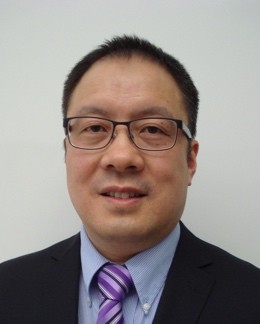 Minyi Huang received the B.Sc. degree from Shandong University, Jinan, Shandong, China, in 1995, the M.Sc. degree from the Institute of Systems Science, Chinese Academy of Sciences, Beijing, in 1998, and the Ph.D. degree from the Department of Electrical and Computer Engineering, McGill University, Montreal, QC, Canada, in 2003, all in systems and control. He was a Research Fellow first at the University of Melbourne, Australia, from February 2004 to March 2006, and then at the Australian National University, Canberra, from April 2006 to June 2007. He joined the School of Mathematics and Statistics, Carleton University, Ottawa, ON, Canada in 2007, where he is now a Professor. His research interests include mean field stochastic control and dynamic games, multi-agent control and computation in distributed networks with applications. He is a Fellow of IEEE and a member of SIAM.
Minyi Huang received the B.Sc. degree from Shandong University, Jinan, Shandong, China, in 1995, the M.Sc. degree from the Institute of Systems Science, Chinese Academy of Sciences, Beijing, in 1998, and the Ph.D. degree from the Department of Electrical and Computer Engineering, McGill University, Montreal, QC, Canada, in 2003, all in systems and control. He was a Research Fellow first at the University of Melbourne, Australia, from February 2004 to March 2006, and then at the Australian National University, Canberra, from April 2006 to June 2007. He joined the School of Mathematics and Statistics, Carleton University, Ottawa, ON, Canada in 2007, where he is now a Professor. His research interests include mean field stochastic control and dynamic games, multi-agent control and computation in distributed networks with applications. He is a Fellow of IEEE and a member of SIAM.
Despite their transformative impact, scaling advanced control and optimization solutions remains challenging. In smart cities, heterogeneous sensor networks and time-varying demands necessitate robust controllers that adapt to incomplete or noisy data. Aero-engine control requires handling nonlinear dynamics and extreme operating conditions, demanding high-fidelity modeling and real-time computational efficiency. For power grids, the integration of decentralized renewable energy sources introduces stability risks, calling for distributed control and optimization architectures that ensure synchronization without centralized coordination. Future research must prioritize adaptive control frameworks, enhanced robustness to uncertainties, and scalable algorithms tailored to large-scale, multidomain systems. By addressing these challenges, advanced control will continue to drive innovation in critical industrial systems, bridging theoretical rigor with real-world practicality.
In the proposed mini-workshop, we curate four presentations that address both the theory and technical challenges in practical applications. The speakers will offer insights into how advanced control and optimization methods can be harnessed for smart city, power systems, and aerospace. The proposed mini-workshop aims to trigger new theoretical and technological advances for modern industrial systems.
Organizers
Dr. Tao Yang
State Key Laboratory of Synthetical Automation for Process Industries
Northeastern University
Email: yangtao@mail.neu.edu.cn
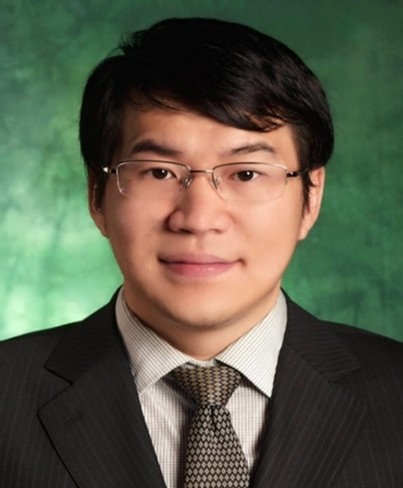 Biography: Tao Yang is a Professor at the State Key Laboratory of Synthetical Automation for Process Industries, Northeastern University. He was an Assistant Professor at the Department of Electrical Engineering, University of North Texas, Denton, USA, from 2016-2019. He received the Ph.D. degree in electrical engineering from Washington State University in 2012. Between August 2012 and August 2014, he was an ACCESS postdoctoral researcher with the ACCESS Linnaeus Centre, Royal Institute of Technology, Sweden. He then joined the Pacific Northwest National Laboratory as a postdoc, and was promoted to Scientist/Engineer II in 2015.
Biography: Tao Yang is a Professor at the State Key Laboratory of Synthetical Automation for Process Industries, Northeastern University. He was an Assistant Professor at the Department of Electrical Engineering, University of North Texas, Denton, USA, from 2016-2019. He received the Ph.D. degree in electrical engineering from Washington State University in 2012. Between August 2012 and August 2014, he was an ACCESS postdoctoral researcher with the ACCESS Linnaeus Centre, Royal Institute of Technology, Sweden. He then joined the Pacific Northwest National Laboratory as a postdoc, and was promoted to Scientist/Engineer II in 2015.
His research interests include industrial artificial intelligence, integrated optimization and control, distributed control and optimization with applications to process industries, cyber physical systems, networked control systems, and multi-agent systems. He is an Associate Editor for IEEE Transactions on Control of Network Systems, IEEE Transactions on Control Systems Technology, and IEEE Transactions on Neural Networks and Learning System. He received Ralph E. Powe Junior Faculty Enhancement Award and Best Student Paper award (as an advisor) of several international Conference.
Dr. Xinlei Yi
Shanghai Institute of Intelligent Science and Technology
Tongji University
Email: xinleiyi@tongji.edu.cn
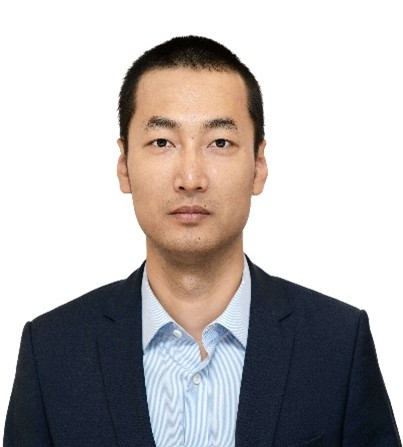 Biography: Xinlei Yi received the B.S. and M.S. degrees in mathematics from China University of Geoscience, Wuhan, China, and Fudan University, Shanghai, China, in 2011 and 2014, respectively, and the Ph.D. degree in electrical engineering from KTH Royal Institute of Technology, Stockholm, Sweden, in 2020. He was a Postdoc with KTH Royal Institute of Technology from 2020 to 2022 and with the Lab for Information and Decision Systems, Massachusetts Institute
Biography: Xinlei Yi received the B.S. and M.S. degrees in mathematics from China University of Geoscience, Wuhan, China, and Fudan University, Shanghai, China, in 2011 and 2014, respectively, and the Ph.D. degree in electrical engineering from KTH Royal Institute of Technology, Stockholm, Sweden, in 2020. He was a Postdoc with KTH Royal Institute of Technology from 2020 to 2022 and with the Lab for Information and Decision Systems, Massachusetts Institute
of Technology, Cambridge, MA, USA, from 2022 to 2024. He is a tenure-track professor of Shanghai Institute of Intelligent Science and Technology, Tongji University. Dr. Yi was selected as one of the four finalists for the 2021 European Systems and Control PhD Thesis Award. His current research interests include distributed optimization, online optimization, metalearning and graph neural networks.
Presentaion 1
Presentaion 2
Presentaion 3
Presentaion 4
Dr. Ben M. Chen
Department of Mechanical and Automation Engineering
The Chinese University of Hong Kong
Title: Embodied Intelligent UAS and LLM-assisted DT Technologies for Smart City Applications
Abstract: A smart city leverages information and communication technologies to enhance the quality of life, improve urban operations, and boost competitiveness while addressing the economic, social, environmental, and cultural needs of both current and future generations. In alignment with this vision, the Government of the Hong Kong SAR has introduced the Smart City Blueprint, highlighting the crucial role of unmanned systems. Their flexibility and cost-effectiveness make them ideal for tasks such as traffic management, environmental monitoring, and civil infrastructure inspection. Data from these systems can be seamlessly integrated with environmental modeling and digital twin technologies for effective management. In this talk, we will explore recent developments in embodied intelligent unmanned systems and present a comprehensive infrastructure inspection and management system that utilizes LLM-assisted digital twin (DT) technologies. We will showcase several real-world applications to illustrate their impact.
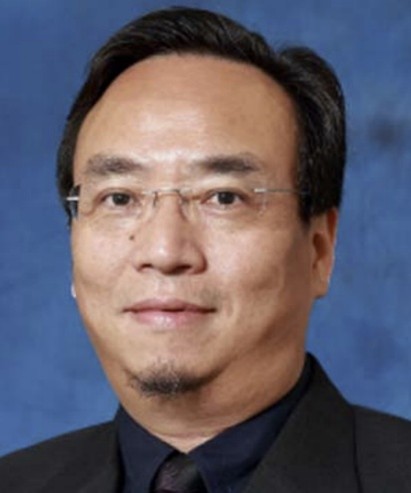 Biography: Ben M. Chen was an Assistant Professor with the Department of Electrical Engineering, State University of New York at Stony Brook, Stony Brook, NY, USA, from 1992 to 1993. He was a Provost’s Chair Professor with the Department of Electrical and Computer Engineering, National University of Singapore (NUS), Singapore. He joined The Chinese University of Hong Kong (CUHK), Hong Kong, in 2018, where he is currently a Professor of mechanical and automation engineering. He has authored or co-authored over 100 journal articles and conference papers, and a dozen research monographs in control theory and applications, unmanned systems, and financial market modeling. His current research interests include unmanned systems and their applications. Dr. Chen is a fellow of the Academy of Engineering, Singapore. He had served on the editorial boards of a dozen international journals, including Automatica and IEEE TRANSACTIONS ON AUTOMATIC CONTROL. He is currently serving as the Editor-in-Chief for Unmanned Systems.
Biography: Ben M. Chen was an Assistant Professor with the Department of Electrical Engineering, State University of New York at Stony Brook, Stony Brook, NY, USA, from 1992 to 1993. He was a Provost’s Chair Professor with the Department of Electrical and Computer Engineering, National University of Singapore (NUS), Singapore. He joined The Chinese University of Hong Kong (CUHK), Hong Kong, in 2018, where he is currently a Professor of mechanical and automation engineering. He has authored or co-authored over 100 journal articles and conference papers, and a dozen research monographs in control theory and applications, unmanned systems, and financial market modeling. His current research interests include unmanned systems and their applications. Dr. Chen is a fellow of the Academy of Engineering, Singapore. He had served on the editorial boards of a dozen international journals, including Automatica and IEEE TRANSACTIONS ON AUTOMATIC CONTROL. He is currently serving as the Editor-in-Chief for Unmanned Systems.
Dr. Tao Liu
Department of Electrical and Electronics
The University of Hong Kong
Title: Cooperative Frequency Control of Power Systems
Abstract: Driven by climate change and global warming, power systems are undergoing an essential transition. The core is the gradual replacement of fossil fuel with renewable generation through converter-interfaced generators (CIGs), which causes critical changes to power systems and introduces new frequency control issues. For one thing, renewables bring uncertainties into generation and raise new power balance issues. For another thing, low or even time-varying system inertia caused by the loss of synchronous generators (SGs) makes the system more sensitive to contingencies and hard to control. In this talk, we will discuss how to deal with these new issues through three aspects, including the improvement of generation side control, distributed load-side control, and distributed data-based control.
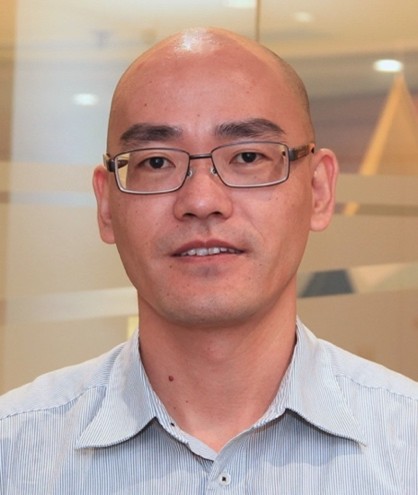 Biography: ao Liu received the B.E. degree from the College of Information Science and Engineering, Northeastern University, Shenyang, China, in 2003, and the Ph.D. degree from the Research School of Engineering, The Australian National University, Melbourne, Australia, in 2011. In 2012, he was a Visiting Scholar with the Centre for Future Energy Networks, The University of Sydney. From 2012 to 2015, he was a Post-Doctoral Fellow with The Australian National University, the University of Groningen, and The University of Hong Kong. In 2015, he became a Research Assistant Professor. He is currently an Assistant Professor with the Department of Electrical and Electronic Engineering, The University of Hong Kong. His research interests include power system analysis and control, complex dynamical networks, distributed control, and event-triggered control.
Biography: ao Liu received the B.E. degree from the College of Information Science and Engineering, Northeastern University, Shenyang, China, in 2003, and the Ph.D. degree from the Research School of Engineering, The Australian National University, Melbourne, Australia, in 2011. In 2012, he was a Visiting Scholar with the Centre for Future Energy Networks, The University of Sydney. From 2012 to 2015, he was a Post-Doctoral Fellow with The Australian National University, the University of Groningen, and The University of Hong Kong. In 2015, he became a Research Assistant Professor. He is currently an Assistant Professor with the Department of Electrical and Electronic Engineering, The University of Hong Kong. His research interests include power system analysis and control, complex dynamical networks, distributed control, and event-triggered control.
Dr. Yuzhe Li
State Key Laboratory of Synthetical Automation for Process Industries
Northeastern University
Title: Spatiotemporal Learning-Based Stochastic MPC with Applications in Aero-engine Control
Abstract: To deal with the issue of model uncertainty, extensive stochastic MPC methods have been investigated, where the uncertainties are typically assumed to follow given statistical distributions. However, in practical scenarios, the statistical properties of model uncertainties may depend on certain hyperparameters varying both temporally and spatially. For instance, in the applications of aero-engine control, different types of uncertainties may occur under different operational conditions, such as flight altitudes and Mach numbers, which are dynamically changing. Traditionally, the stochastic MPC methods may not be able to handle these types of uncertainties directly. Therefore, we propose a spatiotemporal learning-based stochastic model predictive control algorithm to study the stochastic optimal control problem with dynamically changing uncertainties, by constructing spatiotemporal Gaussian processes (GPs) to approximate the uncertainties based on measurement data. Since the spatiotemporal GPs may be difficult to evaluate with long processing time series, we present a state-space representation of GPs to employ computationally efficient Kalman filtering. Then, we derive a computationally tractable control strategy by parameterizing the controller and reformulating the cost and chance constraints, and analyze the corresponding recursive feasibility and closed-loop stability. Finally, the proposed algorithm is applied to the compressor control of the aero-engine, and the comparisons with other MPC controllers are demonstrated to show the effectiveness of our methods.
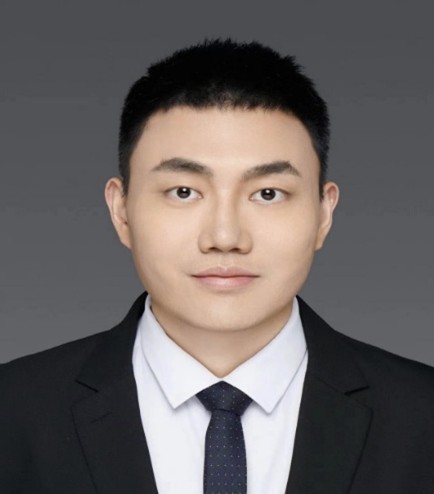 Biography: Yuzhe Li is currently a Professor in the State Key Laboratory of Synthetical Automation for Process Industries, Northeastern University, Shenyang, China. He received the B.S. degree in Mechanics from Peking University, China in 2011 and the Ph.D. degree in Electronic and Computer Engineering from the Hong Kong University of Science and Technology (HKUST), Hong Kong in 2015. Between June 2013 and August 2013, he was a visiting scholar in the University of Newcastle, Australia. From September 2015 to September 2017, he was a Postdoctoral Fellow at the Department of Electrical and Computer Engineering, University of Alberta, Canada. His research interests include cyber-physical systems security, sensor power control and networked state estimation. He serves as an Editor for International Journal of Robust and Nonlinear Control.
Biography: Yuzhe Li is currently a Professor in the State Key Laboratory of Synthetical Automation for Process Industries, Northeastern University, Shenyang, China. He received the B.S. degree in Mechanics from Peking University, China in 2011 and the Ph.D. degree in Electronic and Computer Engineering from the Hong Kong University of Science and Technology (HKUST), Hong Kong in 2015. Between June 2013 and August 2013, he was a visiting scholar in the University of Newcastle, Australia. From September 2015 to September 2017, he was a Postdoctoral Fellow at the Department of Electrical and Computer Engineering, University of Alberta, Canada. His research interests include cyber-physical systems security, sensor power control and networked state estimation. He serves as an Editor for International Journal of Robust and Nonlinear Control.
Dr. Apostolos I. Rikos
Artificial Intelligence Thrust of the Information Hub
The Hong Kong University of Science and Technology (Guangzhou)
Title: Enhancing Efficiency in Distributed Optimization: From Quantized Messaging to Adaptive Refinement and Performance-Driven Termination
Abstract: Distributed optimization and learning have emerged as crucial tools for tackling large-scale problems in networks of interconnected devices, including sensor networks and IoT systems. As communication between nodes often becomes a bottleneck, there is a pressing need for techniques that enhance efficiency and operate under constraints. This talk will explore key approaches to improve communication efficiency in distributed optimization algorithms. We will begin by examining strategies involving quantization and message compression, which reduce the size of transmitted messages and allow more information to be packed into bandwidth-limited channels. The discussion will then shift to specialized techniques designed for highly constrained environments with severe bandwidth limitations, focusing on enhancing communication efficiency in these challenging scenarios. To conclude, we will present distributed stopping criteria that enable nodes to terminate their operation once desired performance metrics are achieved. Through the integration of these techniques, distributed optimization and learning algorithms can be made more communication-efficient and adaptable to constrained environments while maintaining high performance. This comprehensive approach addresses the critical challenges in modern distributed systems, paving the way for more effective and resource-conscious optimization strategies.
 Biography: Apostolos I. Rikos received the B.Sc., M.Sc., and Ph.D. degrees in electrical engineering from the Department of Electrical and Computer Engineering, University of Cyprus, Nicosia, Cyprus, in 2010, 2012, and 2018, respectively. He is currently an Assistant Professor with the Artificial Intelligence Thrust of the Information Hub, The Hong Kong University of Science and Technology (Guangzhou), Guangzhou, China. He is also with the Department of Computer Science and Engineering, The Hong Kong University of Science and Technology, Clear Water Bay, Hong Kong. In 2018, he joined the KIOS Research and Innovation Center of Excellence, Aglandjia, Cyprus, where he was a Research Lecturer. In 2020, he joined the Division of Decision and Control Systems of KTH Royal Institute of Technology as a Postdoctoral Researcher. In 2023, he joined the Department of Electrical and Computer Engineering, Division of Systems Engineering, Boston University, Boston, MA, USA, as a Postdoctoral Associate. His research interests include distributed optimization and learning, distributed network control and coordination, privacy and security, and algorithmic design.
Biography: Apostolos I. Rikos received the B.Sc., M.Sc., and Ph.D. degrees in electrical engineering from the Department of Electrical and Computer Engineering, University of Cyprus, Nicosia, Cyprus, in 2010, 2012, and 2018, respectively. He is currently an Assistant Professor with the Artificial Intelligence Thrust of the Information Hub, The Hong Kong University of Science and Technology (Guangzhou), Guangzhou, China. He is also with the Department of Computer Science and Engineering, The Hong Kong University of Science and Technology, Clear Water Bay, Hong Kong. In 2018, he joined the KIOS Research and Innovation Center of Excellence, Aglandjia, Cyprus, where he was a Research Lecturer. In 2020, he joined the Division of Decision and Control Systems of KTH Royal Institute of Technology as a Postdoctoral Researcher. In 2023, he joined the Department of Electrical and Computer Engineering, Division of Systems Engineering, Boston University, Boston, MA, USA, as a Postdoctoral Associate. His research interests include distributed optimization and learning, distributed network control and coordination, privacy and security, and algorithmic design.
